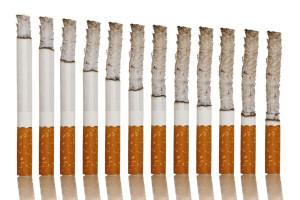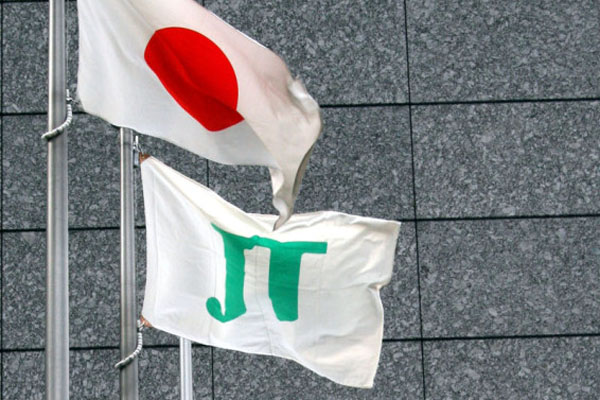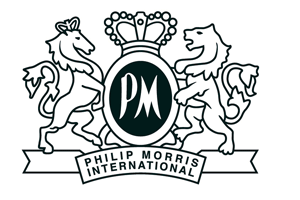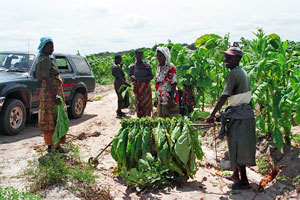Philip Morris USA’s cigarette shipment volume during the three months to the end of June, at 27,266 million, was down by 10.8 percent on that of the three months to the end of June 2017, 30,569 million.
Marlboro shipments were down by 10.0 percent to 23,529 million; shipments of other premium brands fell by 9.4 percent to 1,404 million; while shipments of discount brands fell by 18.5 percent to 2,333 million.
PM USA’s share of the retail cigarette market during the three months to the end of June, at 50.2 percent, was down by 0.7 of a percentage point from that of the three months to the end of June 2017. Marlboro’s share, at 43.2 percent, was down by 0.3 of a percentage point; the share of its other premium brands was down by 0.1 of a percentage point to 2.6 percent; while the share of the company’s discount brands was down by 0.3 of a percentage point to 4.4 percent.
The Altria Group yesterday published its second-quarter and first-half results for 2018.
Middleton’s cigar shipment volume during the three months to the end of June, at 417 million, was increased by 2.7 percent on that of the three months to the end of June 2017, 406 million.
Black & Mild brand shipments were up by 3.0 percent to 414 million, while shipments of other brands fell by 25.0 percent from four million to three million.
USSTC’s smokeless-products shipment-volume during the three months to the end of June, at 215.7 million cans and packs, was down by 2.4 percent on that of the three months to the end of June 2017, 221.0 million.
Shipments of Copenhagen were up by 0.4 percent to 138.1 million; those of Skoal were down by 9.1 percent to 59.8 million; while those of other brands were increased by 0.6 percent to 17.8 million.
USSTC’s share of the US market for smokeless products during the three months to the end of June, at 54.1 percent, was down by 0.2 of a percentage point from that of the three months to the end of June 2017. Copenhagen’s share was unchanged at 34.3 percent; Skoal’s share was down by 0.4 of a percentage point to 16.4 percent; while the share of other brands was increased by 0.2 of a percentage point to 3.4 percent.
Altria’s net revenues during the second quarter, at $6,305 million were down by 5.4 percent on those of the second quarter of 2017, while revenues net of excise taxes were down by 3.7 percent to $4,879.
Altria’s second-quarter reported diluted earnings per share (EPS) were down by 3.9 percent to $0.99, while its second-quarter adjusted diluted EPS increased by 18.8 percent to $1.01.
“We continued our strong start to the year with adjusted diluted earnings per share growth of 18.8 percent in the second quarter,” said Howard Willard, Altria’s chairman and CEO.
“Our core tobacco businesses performed well as they continued to make strategic investments in support of their long-term objectives.
“Of course, our results benefited from a lower corporate tax rate.
“We continued to reward shareholders in the quarter by paying out over $1.3 billion in dividends and repurchasing approximately $437 million in shares.
“To reflect a strong first half and continued confidence in our core tobacco businesses, we are raising the lower-end of our guidance and now expect full-year adjusted diluted EPS growth of 16 percent to 19 percent.”
Category: Financial

Volume decimated

BAT’s profit soars
British American Tobacco’s cigarette volume during the six months to the end of June, at 345 billion, was down by 3.1 percent on that of the six months to the end of June 2017 [when the 2017 six-month results were presented, volume was give as 314 billion, which would indicate that volume had increased by about 10 percent, but volume figures for the first half of 2018 have been given on a ‘representative basis’ – as if BAT had owned RAI and other acquisitions, completed in 2017, from 1 January 2017.]
BAT’s tobacco-heating-product (THP) volume, during the six months to the end of June, at 3.3 billion sticks was increased by 855 percent on that of the six months to the end of June 2017; so the company’s combined cigarette and THP volume fell by 2.2 percent to 348.3 billion.
BAT’s oral-tobacco-product volume was up by 1,093 percent to the equivalent of 4.4 billion sticks; its vapor volume, measured in 10 ml units, was up by 160 percent to 77.6 million; and its other-tobacco-product volume, which includes roll-your-own and make-your-own products, was down by 6.9 percent to 10.3 billion stick-equivalents.
BAT’s revenue during the six months to the end of June, at £11,636 million, was said to be up by 56.9 percent on that of the six months to the end of June 2017.
Profit from operations was up by 72.4 percent to £4,438 million, while basic earnings per share were down by 3.4 percent to 117.7p.
In announcing the half-year results, CEO, Nicandro Durante, said the company’s strategy was to continue to grow its combustible business while investing in the ‘exciting’ potentially reduced risk categories of THP, vapor and oral. As the Group expanded its portfolio in these categories, it would continue to drive sustainable growth.
‘In the first six months of 2018, the Group continued to perform well,’ he said. ‘The cigarettes and THP portfolio has outperformed the industry as market share grew 40 basis points (bps) with a tobacco price mix of approximately four percent which is expected to strengthen in the second half of the year.
‘The performance of Reynolds American Inc. (RAI) since acquisition is encouraging and the Group’s diverse NGP portfolio has grown strongly. The foreign exchange impact on the Group’s results was a headwind of eight percent for the first six months of the year and is estimated to be 5-6 percent for the full year, based upon the current foreign exchange rates.
‘Despite the recent slowdown in the THP category in some markets, including Japan and South Korea, we remain confident of exceeding £1 billion of reported revenue in NGP in 2018 as we expect a range of new launches to re-energise growth in THP in the second half of the year.
‘We anticipate another good year of adjusted earnings growth at constant rates of exchange.’
PMI's volume increased
Philip Morris International’s cigarette shipment volume during the second quarter to the end of June, at 190,721 million, was down by 1.5 per cent on that of the second quarter of 2017, 193,540 million.
Volume increased by 6.6 percent to 44,788 million in its South and Southeast Asia region and by 5.7 percent to 34,177 million in its Middle East and Africa region. But volume was down in each of its other regions: by 3.6 percent to 47,894 million in the EU; by 4.3 percent to 15,114 million in East Asia and Australia; by 6.3 percent to 20,204 million in Latin America and Canada; and by 11.3 percent to 28,454 million in Eastern Europe.
Cigarette shipments of Marlboro were up by 0.1 percent to 68,893 million, while those of L&M where down by 0.7 percent to 23,196 million. Cigarette shipments of Chesterfield rose by 9.3 percent to 14,926 million; those of Philip Morris fell by 1.3 percent to 12,523 million; those of Sampoerna A fell by 4.2 percent to 10,174 million; those of Parliament fell by 1.6 percent to 10,993 million, those of Bond Street fell by 18.4 percent to 8,390 million; those of Dji Sam Soe rose by 43.0 percent to 6,877 million; those of Lark rose by 3.8 percent to 5,904 million; and those of Fortune rose by 21.2 percent to 4,155 million. Shipments of other cigarette brands fell by 14.9 percent to 24,690 million.
The 2018 second-quarter overall decline in cigarette shipments was more than offset by an increase in sales of heated-tobacco units (HTUs); so total sales of cigarettes and HTUs increased by 0.9 percent to 201,708 million from those of the second-quarter of 2017.
Shipments of HTUs during the three months to the end of June, at 10,987 million, were up by 73.0 percent on those of the three months to the end of June 2017, 6,350 million.
Shipments of HTUs were increased in all the regions where they are sold: in the EU from 392 million to 1,195 million; in Eastern Europe from 117 million to 951 million; in the Middle East and Africa from 112 million to 971 million; in East Asia and Australia from 5,726 million to 7,838 million; and in Latin America and Canada from three million to 32 million.
PMI reported also that its shipment volume of cigarettes during the six months to the end of June, at 355,001 million, was down by 3.3 percent on that of the six months to the end of June 2017, 367,092.
At the same time, shipments of HTUs were up by 90.6 percent to 20,553 million, while its total cigarettes and HTUs volume was down by 0.6 percent to 375,554 million.
Reported and adjusted diluted earnings per share during the second quarter, at $1.41, were increased by 23.7 percent on those of the second quarter of 2017, $1.14.
Net revenues were up by 11.7 percent to $7.7 billion.
“Our second-quarter earnings highlight the fundamental strength of our business, with positive total volume growth, currency-neutral net revenue growth of more than eight percent, driven by higher pricing from our combustible product portfolio, and close to double-digit growth in ex-currency operating income,” said CEO André Calantzopoulos (pictured).
“We are seeing encouraging improvement in the markets we previously cited as challenging, with a sequential recovery of volume in the GCC and an improving pricing environment in Russia.
“Reflecting better execution, our heated tobacco portfolio across IQOS launch geographies is performing well, notably in key markets such as the EU. We are implementing the right marketing and product measures to reinvigorate growth in Japan, which is undoubtedly well below our initial expectation this year. These initiatives, which require the rightsizing this year of existing IQOS device and consumable inventories, will position PMI well for a strong overall performance in 2019.
“Our revised 2018 EPS guidance reflects this decision, as well as the shift in previously positive currency to a headwind for the full year. Partially offsetting these impacts is the benefit of a further reduction of our effective tax rate.
“As demonstrated by our dividend increase of 6.5 percent last month, we remain confident in our long-term growth prospects, underpinned by the strength of our combustible portfolio and the proven potential of our smoke-free alternatives.”
Eastern shares to be sold
Egypt on Tuesday became the latest country to sign up to the idea that the way ahead is to sell off the family silver.
According to a Reuters story citing a cabinet statement, the country announced the names of the first five state companies whose shares would be offered on the Cairo exchange: the Alexandria Mineral Oils Company, Eastern Tobacco, Alexandria Container and Cargo Handling, Abou Kir Fertilizers, and Heliopolis Housing.
The cabinet statement did not specify the exact timing of the share offerings or the size of the stakes to be offered, but the government has said previously that the stakes would range from 15-30 percent and would be offered in the coming months.
Egypt earlier this year said it planned to offer stakes in a total of 23 state companies to raise E£80 billion ($4.5 billion) during the next two-and-a-half years.
JT's domestic sales down
Japan Tobacco Inc.’s domestic cigarette sales volume during June, at 7.0 billion, was down by 11.7 percent on that of June 2017, 8.0 billion, according to preliminary figures issued by the company today. The June 2017 figure was down by 10.1 percent on that of June 2016.
Volume during January-June, at 40.4 billion, was down by 13.8 percent on that of January-June 2017, 46.8 billion. The January-June 2017 volume was down by 11.2 percent on that of January-June 2016.
JT’s market share stood at 61.9 percent during June, at 61.5 percent during January-June, and at 61.3 percent during January-December 2017.
JT’s domestic cigarette revenue during June, at ¥41.9 billion, was down by 11.3 percent on its June 2017 revenue, ¥47.2 billion, which was down by 10.2 percent on its revenue of June 2016.
Revenue during January-June, at ¥241.3 billion, was down by 13.3 percent on that of January-June 2017, ¥278.5 billion, which was down by 9.0 percent on its revenue of January-June 2016.
PMI to host results webcast
Philip Morris International Inc. is due to host a live audio webcast at www.pmi.com/2018Q2earnings from 09.00 Eastern Time on July 19 to discuss its 2018 second-quarter results, which will be issued about 07.00 on the same day.
During the webcast, which will be in a listen-only mode, CFO Martin King will discuss the results and answer questions from the investment community and news media.
The audio webcast may be accessed also on iOS or Android devices by downloading PMI’s free Investor Relations Mobile Application at www.pmi.com/irapp.
An archived copy of the webcast will be available until 17.00 on August 17 at www.pmi.com/2018Q2earnings.
Slides and the script will be available, also at www.pmi.com/2018Q2earnings.
Altria to webcast results
The Altria Group is due to host a live audio webcast from 09.00 Eastern Time on July 26 to discuss its 2018 second-quarter business results. The company will issue a press release containing its results about 07.00 on the same day.
The webcast, which will be in listen-only mode, can be accessed at altria.com or through the Altria Investor App.
During the webcast, chairman and CEO Howard Willard and vice chairman and CFO Billy Gifford will discuss the results and answer questions from the investment community and news media.
Pre-event registration is necessary through www.altria.com/webcasts.
An archived copy of the webcast will be available on altria.com or through the Altria Investor App.
The free app is available for download at www.altria.com/irapp or through the Apple App Store or Google Play.
Spending questioned
The Indonesian Consumers Foundation (YLKI) has criticized the Government for ‘wasting the state budget’ on challenging Australia’s standardized-tobacco-packaging law in a recent trade dispute at the World Trade Organization (WTO), according to a story in The Jakarta Post.
The Post story said the WTO had rejected a complaint filed by Indonesia, Cuba, Honduras and the Dominican Republic against Australia, concluding that the Australian policy did not violate fair trade rules and helped reduce tobacco consumption.
The four countries had argued that Australia’s standardized-tobacco-packaging policy had violated tobacco companies’ trademarks and intellectual property rights.
“The case incurred financial losses [to Indonesia] because the Government spent money from the state budget to hire an international lawyer,” YLKI chairman Tulus Abadi was quoted as saying yesterday.
The Supreme Audit Agency and the Corruption Eradication Commission should audit the funds the Government had spent on hiring the lawyer, he added.
Tulus said the WTO decision was foreseeable and accused the Government of not supporting international campaigns on reducing tobacco consumption.
Standardized-tobacco-packaging was part of a global tobacco control campaign that aimed to deter smoking by cutting the positive associations linking cigarette brands and tobacco consumption.
It required all branding to be removed from cigarette packs and mandated health warnings.
Spending questioned
An English member of the European Parliament is seeking to discover how much EU taxpayers’ money has been spent so far this century in trying to get people to quit smoking.
Without giving a preamble to his question, Tim Aker asked the European Commission to ‘set out, broken down both by organisation and year-by-year since 2000, just how much money has been paid by the Union under whatever budget heading to stop smoking?’
The Commission is due to reply in writing.
Price reductions continuing
The Tobacco Association of Zambia (TAZ) says that the ‘continued reduction’ in tobacco prices has negatively affected the growth of the sector, according to a story in The Zambia Daily Mail.
During the past three years, the TAZ was quoted as saying, tobacco prices had been declining, with flue-cured Virginia and Burley averaging US$2.50 per kg and US$1.90 per kg respectively this year.
This year’s marketing season started in the third week of April.
In its annual report, TAZ says the decline in the price of tobacco had led to the sector becoming less profitable.










